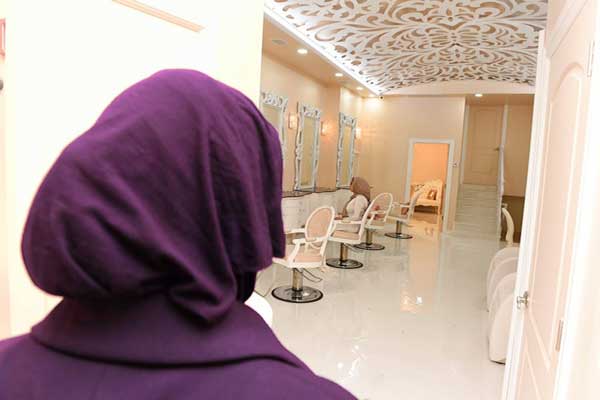“The Apostle of Allah (pbuh) cursed the one who accepted usury, the one who paid it, the witness to it, and the one who recorded it” (Book 22, Number 3327 of the Sunan of Abu Dawud, Narrated by Abdullah ibn Mas’ud).
At times, it can be challenging living as a Muslim in a majority non-Muslim nation. Until recently, it was not possible to live in the United States and organize your financial affairs to avoid using financial institutions that engaged in usury (riba). Developments over the past ten years, however, have seen rapid progress in Islamic finance in the U.S., and now Muslims can use Shari’ah compliant banking services, regardless of where they live in the 50 states. These services are convenient, of high quality, and backed by the legal opinion(s) (fatwa/fatawa) of the leading U.S. and overseas Islamic scholars who specialize in Shari’ah.
Recent events on Wall Street certainly are a stark reminder that there are important differences between financial institutions. Many U.S. residents use the financial services provided by large financial institutions that were bailed out by the U.S. government after they engaged in morally questionable practices. For example, these banks originated, packaged, and sold to institutional investors including pension funds and overseas banks securities backed by bad debt and risky loans. They leveraged up their assets 50 to one on their capital and, in many cases, via infinite leverage using derivative contracts. Piling leverage upon leverage, they sliced and diced up debt into trenches of debt that only mathematicians could value. Unfortunately, their formulas did not properly calculate the risks and brought many investors ruin. The investors in these securities backed by these loans suffered massive losses, and this endangered the life savings of hundreds of millions of individuals around the world. These banks were also very indiscriminate with whom they did business, dealing with unscrupulous mortgage bankers who sold subprime mortgages to minorities even if they qualified for prime mortgages, overcharging for their services, and not caring how they made their profits. They also made profits from lending to businesses that trade in liquor, casinos, gambling, pornography, weapons manufacture, and pork processing. Certainly, ethical considerations are very important in where we choose to conduct our financial affairs, and the recent crisis offers us a good opportunity to reflect on the mistakes of the past and resolve to do better in the future.
Muslims are enjoined to avoid doing business with financial institutions that engage in the payment or receipt of interest (riba). In a non-majority Muslim country where there are not financial institutions available that follow Islamic legal restrictions, scholars have ruled that it is acceptable to deal with financial institutions that deal in riba. However, once financial institutions that follow the principles of Shari’ah and do not deal in riba are available, continuing to deal with institutions that deal in riba is not permitted. Before we look at the alternatives available to Muslims in the U.S. today, it is first important to understand what is the difference between Islamic banking and conventional banking?
One must examine the meaning of riba to better understand how Islamic banking and conventional banking differ. Riba literally means growing or self-generated expansion. Legally, it can be thought of as exchanging different quantities of the same object. For example, the exchange of money in exchange for money plus more money (interest) or selling two bars of gold for three bars of gold payable next month. Whenever the same thing is exchanged to charge more, it is like cheating the person who pays more, and when a loan is extended, a Muslim should do that with no increase (riba), since a loan is a charitable activity, and no profit should be made or extracted from it. In contrast, Shari’ah does permit trade, and profit from trade is an honorable activity. Trade can be thought of as the exchange of two different things at a mutual agreed upon and negotiated price. A house can be sold for money or gold (note that money, gold, and silver are considered under the Shari’ah to be the same thing). A car can be sold for a container of electronics goods, such as TVs or money.
The financial result of permissible and impermissible transactions may be similar, but the methods must differ. This can be thought of as the difference between a halal cheeseburger and a haram cheeseburger. Both might look tasty and contain the same ingredients, but the process that makes the one is very different from the process that makes the other. The process used to manufacture the product is all important and cannot be ignored. There is a common saying, “The ends justify the means.” Of course they do not, and people of moral character rightly reject such thinking as it leads to all kinds of evils and social ills.
Islamic Banking differs from Conventional Banking in four major ways:
ISLAMIC BANKING
Is based on profit or rent
Deals in assets
Is based on profit sharing on deposits side and profit on asset side
Actively participates in trade, production, and valid services through valid contracts
CONVENTIONAL BANKING
Is based on interest
Deals in money or papers
Is based on fixed return on both sides of the balance sheet
Does not involve itself in trade and business
There are five main types of Islamic contracts used in finance:
Murabaha marked up installment sale
Musharaka partnership co-investment
Ijara sale leaseback with promise to purchase
Mudaraba profit sharing deposit
Sukuk profit sharing bond
Islamic contracts have very different legal structures, rights, and responsibilities from conventional financing or investment structures. For example, in Islamic financing agreements, there cannot be any note or mortgage. Under conventional financing, if a home is foreclosed through the legal process, a home owner can continue to be financially responsible for additional payments up to the entire original amount owed, while in Islamic financing, there cannot be any further payments charged following default unless the home itself is damaged through the negligence of the homeowner. Risks to the Islamic banking entity are greater, but under Shari’ah law, there is the principle of “Al-kharaj bi al-daman” (entitlement to)—profit must be accompanied by a liability for loss.
University Islamic Financial, the first banking subsidiary of a U.S. bank run entirely on Shari’ah principles, offers savings and deposit accounts that enable Muslims to save and earn profit from usury-free (and riba-free) banking accounts. The funds invested into these deposit accounts are FDIC-insured and are invested into Islamic contracts of the five types outlined above. These deposit accounts are Mudaraba, or profit-sharing deposit contracts. If the underlying contracts produce a profit, then that profit is given to the deposits after first deducting a management fee. If there is no profit, no profits are paid. If there is a loss, under Islamic law, those losses must be shared, but under U.S. law, losses cannot be shared. University Islamic informs its customers that there was a loss, the amount of the loss relative to their Mudaraba deposit, and then this amount of loss can be donated to charity to avoid retention of a benefit not permitted in the Shari’ah. University Islamic Financial’s Shari’ah scholars have examined this arrangement and provided a legal ruling (fatwa) covering the entire process.
When a Muslim has a need to finance the purchase of a residence or a commercial building, they can enter into a financing arrangement firms that offer Islamic compliant home finance.
Currently, University Islamic offers Murabaha and Ijara contracts for home finance and Ijara contracts for commercial building finance. When a Muslim chooses to obtain financing from University Islamic Financial instead of a conventional bank, in addition to their own personal benefit from the contract being Shari’ah compliant, they benefit the wider Muslim community (ummah) through a beneficial cycle of Islamic finance.
How does a Muslim save properly for marriage, Hajj, to buy a car, or to make a down payment for a house, the higher education of children, etc.? The simple answer is by opening a savings account through University Islamic Financial, they can save for all of these major life events. A Savings Account is easy to set up. New account forms are available from University Islamic Financial at www.universityislamicfinancial.com Time deposits can also be opened for one, two, or five years. The longer the investment funds are put at risk, the higher the percentage of profit sharing earned by the depositor from the underlying Islamic investment contracts.
There are several methods of depositing funds to the FDIC-insured Islamic Mudaraba bank deposit contracts:
Mail deposits
Wire deposits (domestic or international)
Payroll or other recurring (ACH) deposits
Western Union transfers
Withdrawing funds from the FDIC-insured Islamic Mudaraba bank deposit contracts is relatively easy. Accounts come with free checks, a free Mastercard® debit card, free internet banking, free internet bill payment, Western Union® transfers, wire transfers (domestic or international), recurring debit (ACH) transactions and cash withdrawals from any of over 47,000 ATM machines across the U.S. (and several million overseas Mastercard branded ATM machines) that can be used for free with no transaction fees. Returns on the FDIC-insured Islamic Mudaraba bank deposit contracts have ranged historically between 0% and 4%, and a table of those returns is available online at www.universityislamicfinancial.com/deposit_rates.html.
For those who wish to take greater risks with their long term investment capital, there are several U.S. based Islamic Mutual Funds that adhere to Islamic principles, avoiding interest (riba) by not investing in bonds and other fixed-income securities; nor do they invest in businesses that deal in liquor, casinos, pornography, insurance, gambling, pork processing, and interest-based banks.
However, those who do not wish to take as much risk and prefer to make an investment that is more stable may invest funds in FDIC insured Islamic deposit accounts, such as those offered by University Islamic Financial (www.universityislamicfinancial.com), which has the largest Islamic balance sheet of any Shari’ah compliant banking institution in the U.S. with over $25 million of Islamic deposits from Muslim customers nationwide invested in Islamic financings. University Islamic Financial has Muslim bankers on their staff that may speak your language, understand your needs, and assist you in explaining the Islamic banking alternatives in greater detail.





